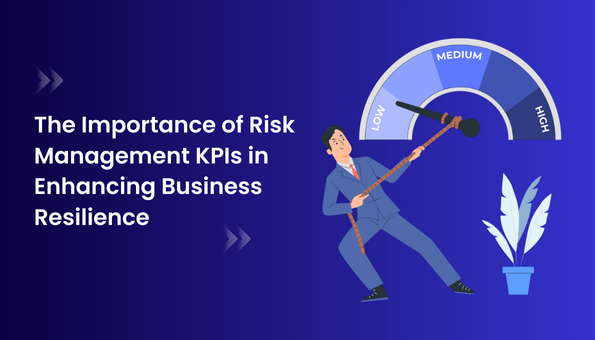The Tactical Importance of Risk Management in Building Business Advantage
The Tactical Importance of Risk Management in Building Business Advantage
Blog Article
The Importance of Comprehending the Relevance of Risk Management in Different Industries

The Core Concept of Risk Management and Its Function
Risk Management, the keystone of lots of sectors, depends upon the recognition, analysis, and reduction of uncertainties in a business atmosphere. It is an essential technique that permits companies to safeguard their assets, reputation, and overall survival. By correctly determining potential risks, companies can develop techniques to either avoid these dangers from happening or reduce their effect. The examination procedure includes analyzing the chance and possible seriousness of these risks. The mitigation procedure entails devising methods to decrease their potential impact when threats have actually been recognized and reviewed. This procedure is intermittent and continuous, guaranteeing that businesses are prepared for the ever-changing nature of Risk in various sectors. The main function, thus, is to foster resilience amidst unpredictabilities.
Benefits of Applying Risk Management in Company Procedures

Unveiling the Role of Risk Management in Different Industries
While every industry confronts its unique set of risks, the execution of Risk Management approaches continues to be a typical denominator in their search of sustainability and development. In the medical care market, Risk Management entails guaranteeing individual security and data security, while in financing, it includes mitigating investment dangers and making sure regulatory compliance. Ultimately, the function of Risk Management throughout sectors is to recognize, examine, and alleviate dangers.
Real-life Situation Research Studies Showing Successful Risk Management
To comprehend the significance of Risk Management in these many industries, one can aim to numerous real-life instances that illustrate the effective application of these actions. For circumstances, in the energy industry, British Oil created Risk reduction prepares post the 2010 Gulf of Mexico oil spill. They executed much better safety procedures and more stringent regulations which substantially minimized additional accidents. moved here In financing, Goldman Sachs effectively navigated the 2008 financial dilemma by identifying possible mortgage-backed safeties threats early. Last but not least, Toyota, post the 2011 earthquake in Japan, modified its supply chain Management to minimize disruption dangers. These instances show exactly how industries, gaining from dilemmas, efficiently used Risk Management strategies to minimize future risks.
Future Patterns and Growths in Risk Management Approaches
As the world remains to evolve, so also do the trends and advancements in Risk Management approaches. Rapid advancements in technology and information analytics are improving the Risk landscape. Large information and AI are now critical in anticipating and minimizing risks. Organizations are leveraging these devices to develop predictive versions and make data-driven choices. Cybersecurity, when an outer worry, has actually catapulted to the center of Risk Management, with approaches concentrating on response, discovery, and prevention. The integration of ESG (Environmental, Social, Governance) elements into Risk Management is another growing fad, mirroring the raising acknowledgment of the role that social and ecological dangers play in company sustainability. Therefore, the future of Risk Management depends on the fusion of innovative modern technology, innovative methods, and a holistic approach.
Final thought
In verdict, recognizing the value of Risk Management across a range of markets is vital for their longevity and success. Customized methods can assist minimize possible threats, secure assets, and foster stakeholder depend on. Furthermore, aggressive decision-making aids in governing compliance and enhances resource usage. why not try here Ultimately, successful Risk Management contributes to more resistant and lasting businesses, highlighting the relevance of this practice in today's dynamic and very competitive service environment.
While every sector faces its special collection of risks, the implementation of Risk Management approaches continues to be an usual denominator in their pursuit of sustainability and growth. In the medical care field, Risk Management entails guaranteeing client safety and data defense, while in money, it includes mitigating investment risks and guaranteeing regulatory conformity. Eventually, the role of Risk Management throughout sectors is to determine, evaluate, and alleviate risks. These cases show exactly how markets, discovering from situations, efficiently used Risk Management strategies to decrease future threats.

Report this page